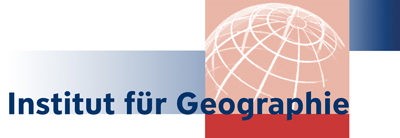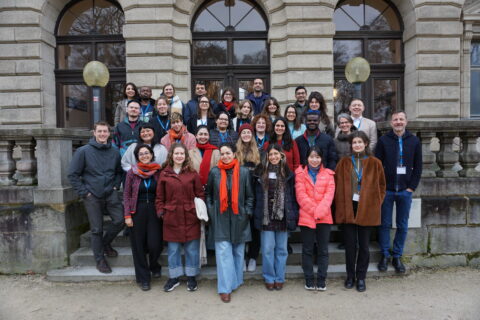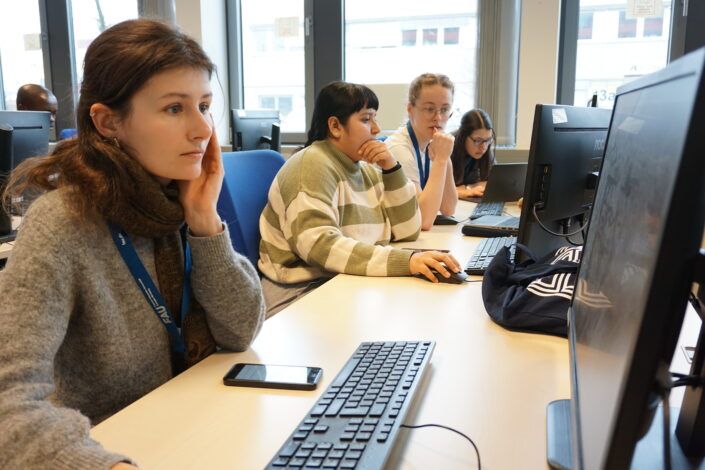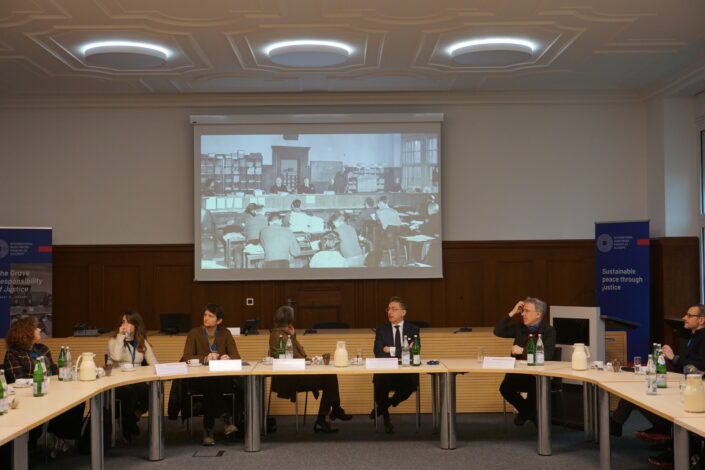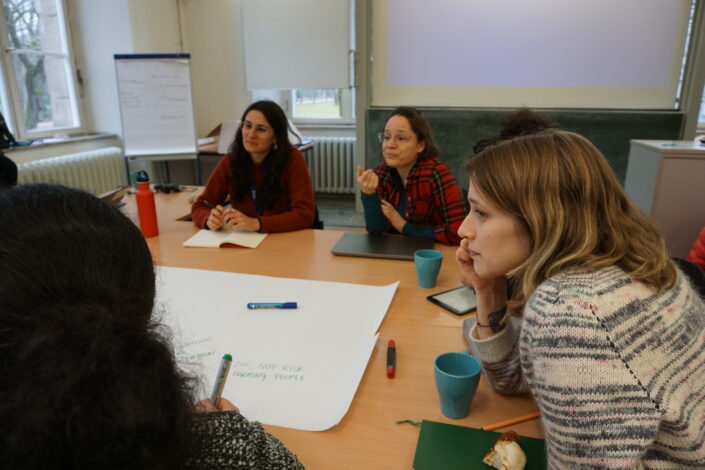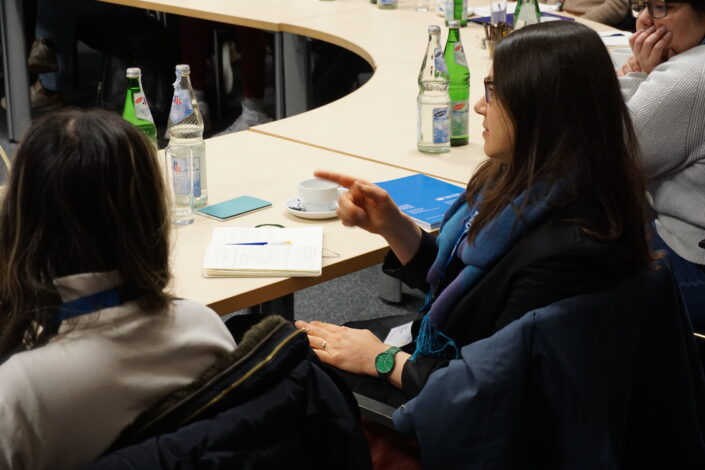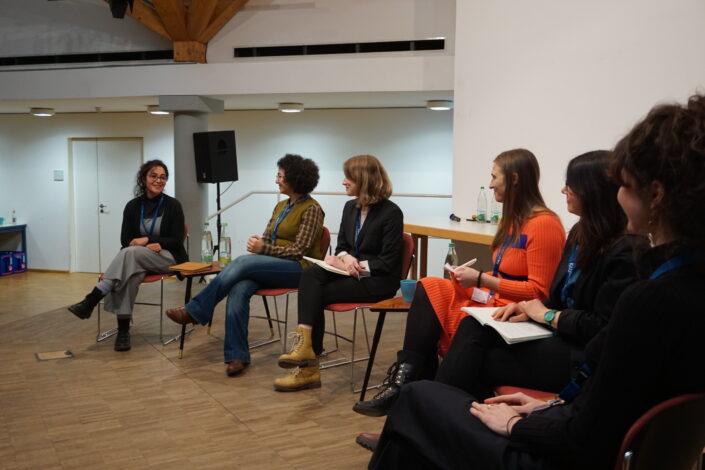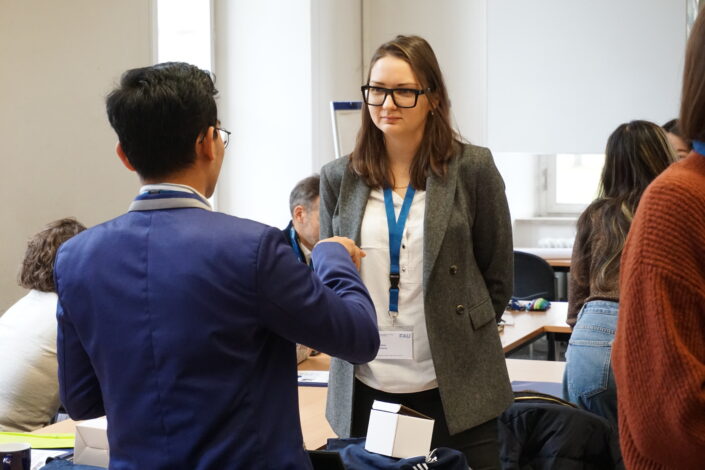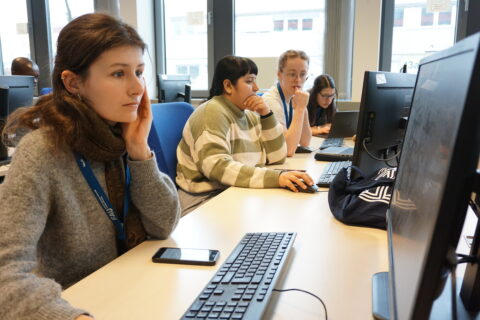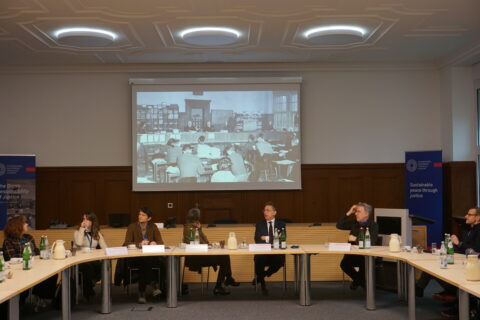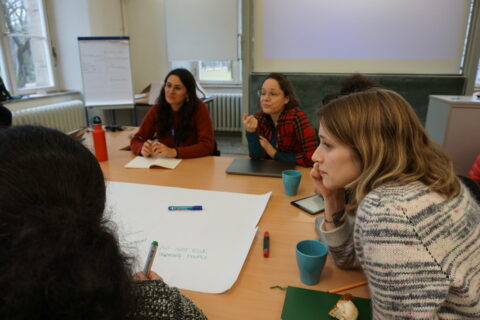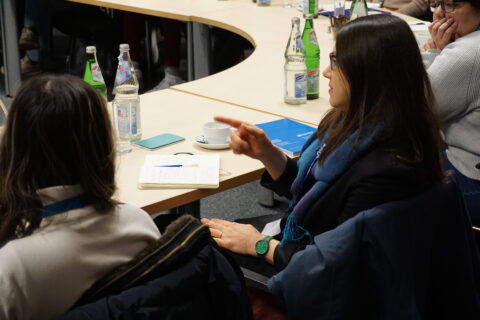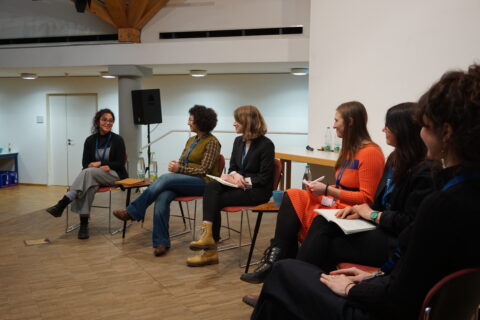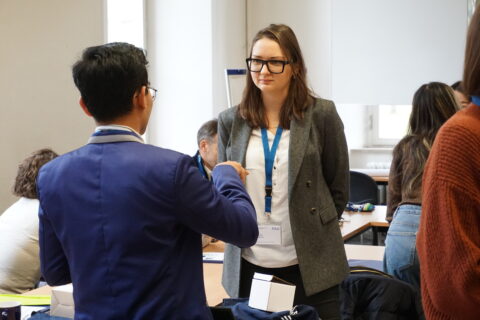Flashback: Geodata for Human Rights Winter School (10-14 February 2025)
The Geodata for Human Rights Winter School 2025 was a unique interdisciplinary program designed to introduce early career researchers to the innovative use of geospatial technologies for human rights documentation and advocacy.
The winter school will took place from 10th – 14th of February 2025 in Erlangen (with day trips to Nuremberg). Participants engaged in hands-on exercises with Geographic Information Systems (GIS) and remote sensing data, learned about the ethical considerations of geodata, and explored real-world applications through case studies and project work. Throughout the five-day program, participants engaged in critical discussions, collaborative projects, and reflective science communication sessions. Hands-on activities were led by guest geospatial experts from Human Rights Watch.
Public events
- Tue., 11.02. 18.00-19.30 Public Lecture (Kollegienhaus Universitätsstraße, Erlangen KH 0.024)Dr. Marie Gabrielle Bertran (Paris): Open Source Intelligence (OSINT): A Practice of Digital Investigation and Intelligence that has Become Central in the War in Ukraine and Raises Questions
Moderation: Prof. Dr. Georg Glasze (FAU)
- Thu., 13.02. 16.00-18.30 Nürnberg (CHREN, Andreij-Sacharow-Platz 1, 90403 Nürnberg)
Expert Panel Discussion on Digital Investigations with Participants from UC Berkely Human Rights Center, Pax, Lund University and Mnemonic/Syrian Archive
-
- Lene Guercke (UC Berkeley, Human Rights Center):
Geolocating User-Generated Content for Accountability: Strategies and Challenges
- Lene Guercke (UC Berkeley, Human Rights Center):
-
- Marie Schellens (PAX, NL):
Remote Sensing the Environmental Impacts of Armed Conflicts: Case Studies from Yemen and Syria, Overview of Possibilities and Limitations, Ethics Towards Impacted Communities, and Addressing Legal Accountability
- Marie Schellens (PAX, NL):
-
- Lina Eklund (Lund University):
Context matters! From Accessibility Modelling in Palestine, to Conflict Impacts on Land Systems in Iraq and Syria
- Lina Eklund (Lund University):
-
- Haneen Kebriteh: (Syrian Archiven):
Leveraging User-Generated Content for Justice: Insights from the Syrian Archive
- Haneen Kebriteh: (Syrian Archiven):
Moderation: Lama Ranjous MA & Raphaela Edler MSc (both FAU)
Program for registered participants
| Mo. 10.02. |
Kollegienhaus
Universitätsstraße 15, 91054 Erlangen
|
Foundations | Introduction to Geodata and Human Rights; Overview of the week’s agenda. |
| Tue. 11.02. |
Institute of Geography,
Wetterkreuz 15, 91058 Erlangen-Tennenlohe
|
GIS & Human Rights Lab | Hands-on exercises focusing on GIS basics for investigating human rights
Public Talk on Open Source Intelligence (OSINT) |
| Wed. 12.02 |
Institute of Geography,
Wetterkreuz 15, 91058 Erlangen-Tennenlohe
|
Remote Sensing & Human Rights Lab | Practical activities using remote sensing techniques in the context of human rights. |
| Thu. 13.02. |
Nürnberg: Nuremberg Principles Academy & CHREN |
Learning from the Past, Shaping the Future | Visit to the International Nuremberg Principles Academy; Public Expert Discussion on Digital Investigations @CHREN |
| Fr. 14.02 |
Kollegienhaus
Universitätsstraße 15, 91054 Erlangen
|
Review and Outlook |
World Café: Challenges & Opportunities
for Geodata & Human Rights
|
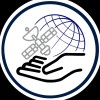
Follow us on LinkedIn and Instagram
Raphaela Edler, Georg Glasze, Katrin Kinzelbach, Lama Ranjous, and Blake Walker
The winter school at the FAU Erlangen-Nürnberg has been organized in the context of a research project funded by the Federal Ministry of Education and Research at the Institute of Political Science (Prof. Kinzelbach) and the Institute of Geography (Profs. Glasze and Walker) in cooperation with the CHREN (Center Human Rights Erlangen-Nürnberg) and the International Nuremberg Principles Academy.
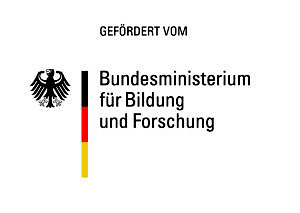 |
 |
 |
